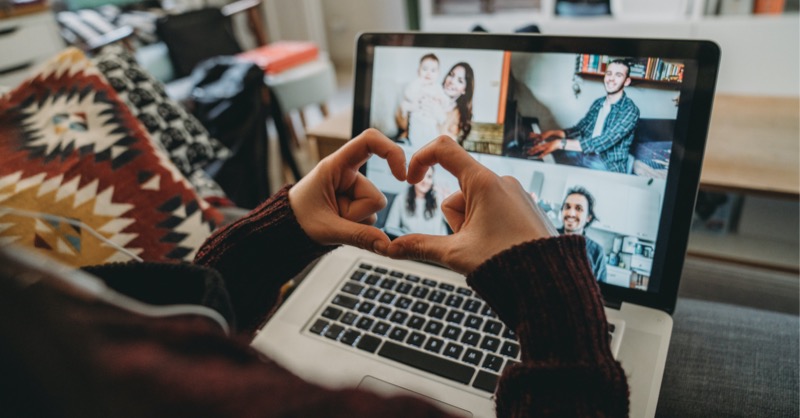This blog series is presented in collaboration with the 2020 Virtual Health Professionals Week. In the first installment, I discussed the importance of prioritizing your mental health through mindfulness and self care. Now let’s take a look at our specific moment in time as it relates to the ongoing coronavirus pandemic.
Mindfulness and Wellness is Crucial During COVID
First, Psychology Today reports that pre-COVID, as many as one in 5 Americans shared that they felt lonely or socially isolated. These numbers have grown considerably due to quarantine measures forcing social isolation upon us necessarily, to prevent the spread of coronavirus. Despite this being necessary for our health and well-being, the impact on our emotional and mental health cannot be understated. For school-aged children, parents/guardians, and educators, social isolation is even more pronounced as schools have been forced to virtual means of instruction in many districts across the country. Therefore, it is critical to make the most of virtual engagement, so that teachers can continue to form bonds and make connections with their students to provide support. Additionally, students need the social connection with their peers and educators to continue their own developmental learning and to also attain a sense of normalcy in such an uncertain time. As many parents and guardians are finding themselves having to supplement their student’s education in unprecedented ways, ongoing conversations are essential to determine how young people are processing their emotions, as feelings of loneliness and social isolation can lead to feelings of depression and anxiety.
Secondly, according to Psychology Today, “Most people, including mental health specialists, have failed to recognize the full significance of the impact of death on life.” Further research has revealed that many of us develop coping skills unknowingly due to a conscious or unconscious fear of death. These coping mechanisms can be unhealthy and decrease our quality of life by making us resistant to love, causing us to diminish the value of forming social bonds, while developing a numbness to different life events. Every day over the past 6 months, we have been subjected to reports of hundreds of thousands of Americans dying on the daily news, some of us have lost family members, friends and acquaintances, not to mention, the daily fear of how COVID-19 impacts our own mortality. These thoughts can consume us emotionally and mentally and can be even physically debilitating. Therefore, engaging with mental health professionals such as therapists and counselors can allow us to talk through our fears and develop healthy coping skills to navigate these uncertain times.
Where Do We Go from Here?
Ultimately, these are just a fraction of the phenomena weighing on us day after day. All of this is hard on each of us, but engaging in self-care practices, mindfulness, and seeking out professional resources such as therapy or coping strategies vetted by reputable organizations can make a difference. The Association of American Medical Colleges maintains a clearinghouse of resources on wellbeing (www.aamc.org.wellbeing) for medical school faculty, researchers, residents, and students. Additionally, events such as Yoga Therapy during this year’s Health Professions Week is just one way you can practice mindfulness. Attendees can also view a collection of videos about mindfulness to equip you with the ability to adapt these practices into your everyday life.
I encourage you to register for Health Professions Week 2020, a FREE online event taking place November 14-19 on a web browser near you, to explore 20+ career options and participating in activities that explore health and wellness.
By Brandon D. Brown, M.S.Ed., Senior Outreach Specialist at the Association of American Medical Colleges.

